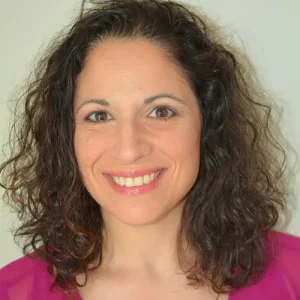If you witnessed someone having a heart attack, you would likely know what to do. Even if you didn’t know CPR; you would at least know to call 9-1-1. What if you came upon someone having a panic attack or a substance use related crisis? Would you know what to do then? Most people would not. That’s where Mental Health First Aid (MHFA) comes in. MHFA is a public education program that helps people identify, understand and respond to the signs of a mental health challenge or someone in emotional distress.
Jodi Langellotti is a Youth & Adult Mental Health First Aid Instructor, as well as an Anxiety & OCD Advocate and Educator, and ACE Certified Master Trainer. She said there are three things we can do to be helpful to those facing a mental health challenge.
“First, educate yourself about mental health,” said Jodi. She identified NAMI as a great resource for free trainings like MHFA and their Connect Suicide Prevention training, UNH Cooperative Extension well as The Dover Mental Health Alliance for additional access to free or low cost trainings.
 “The second step is to get comfortable with being uncomfortable,” said Jodi. Due to the long-standing stigma associated with mental health challenges and substance misuse, conversations about either can be uncomfortable. Without practice and mindset changes, discussing your concerns about changes in someone’s behavior or mental health can be awkward and unsettling.
“The second step is to get comfortable with being uncomfortable,” said Jodi. Due to the long-standing stigma associated with mental health challenges and substance misuse, conversations about either can be uncomfortable. Without practice and mindset changes, discussing your concerns about changes in someone’s behavior or mental health can be awkward and unsettling.
The third step is “When you see something, say something,” according to Jodi. This phrase has often been associated with spotting something suspicious and out of place, such as a bomb. It is as, if not more important in the context of mental health. If you see changes in someone’s behavior or appearance that leave you feeling concerned, say something about it to them or someone close to them. The impact can be monumental.
In 2008, the Adult MHFA program was brought to the United States through a partnership between the National Council for Mental Wellbeing and the states of Maryland and Missouri. A Youth Mental Health First Aid (YMHFA) course was brought to the United States in 2012 and the teen Mental Health First Aid (tMHFA) program in 2018n 2019 to better meet the needs of participants and instructors.
HFA enlists a five step, non-linear action plan:
- Approach and Assess for Risk of Suicide or Harm
- Listen non-judgmentally
- Give reassurance and information, or “hope with facts”
- Encourage appropriate professional help
- Encourage self-help and other support strategies
In New Hampshire, the Department of Education originally coordinated trainings in youth MHFA across the state. Now that coordination is assigned to the UNH Extension Initiative.
The newest MFHA curriculum is teen Mental Health First Aid (tMHFA), which is taught by adults to youth in grades 10 through 12 or age 15 to 18. Trained students are then equipped to bring the program to their peers. Beginning this school year the Dover School District in partnership with the Dover Mental Health Alliance, IDN, UNH Extension and Community Partners started providing tMHFA to all students taking health (generally a sophomore year class). It is thanks in part to additional grant funding from SEED and WDH, tMHFA will be taught in health each semester in perpetuity.
 “One of the benefits of that is it will offer some confidence and tools for youth to see something and say something,” said Jodi. “One in five people will have a mental health illness/disorder in their lifetime, this includes youth. Five out of five will have a mental health challenge at some point. The sooner a person gets connected to help, the better the outcome for the individual.”
“One of the benefits of that is it will offer some confidence and tools for youth to see something and say something,” said Jodi. “One in five people will have a mental health illness/disorder in their lifetime, this includes youth. Five out of five will have a mental health challenge at some point. The sooner a person gets connected to help, the better the outcome for the individual.”
Signs to look out for include changes in behavior, losing interest in normal activities, changes in appearance, declining grades, and changes in eating habits or sleeping. “If something is already going on, and the person is suddenly better, that can also be a sign,” she said. She did caution that one of these signs, in isolation, is not enough to determine distressed mental health.
The role of a Mental Health First Aider is not to diagnose and prescribe treatment, but rather to recognize signs and symptoms, open the door to conversation and help connect people to the appropriate help.
Jodi’s journey in prevention began close to home. Her husband has obsessive-compulsive disorder (OCD). OCD causes people to have recurring, unwanted intrusive thoughts, ideas or sensations (obsessions) that cause heightened fear and anxiety. The unwanted thoughts and feelings make them feel driven to do a ritual or safety behavior (compulsions) in order to make the uncomfortable feelings and unwanted thoughts go away. Jodi’s husband’s OCD began in second grade. He was an obsessive hand-washer and had other indications of contamination OCD. Over the years he got progressively worse.
“He spent five years in therapy, and was on and off medications and nothing was helping him. None of the clinicians were actually trained in treating OCD,” said Jodi. “He grew worse as time went on. He exhibited irritation, changes in sleep and eating. About a week before his 38th birthday he became unable to function at all.”
At this point, an out-patient program coordinator recommended The International OCD Foundation as a resource, which turned out to be a game changer. They looked into it and found a clinician trained in the appropriate treatment for OCD – Exposure and Response Prevention (ERP). ERP therapy is a behavioral therapy that helps to retrain the brain by exposing people to their uncomfortable thoughts and feelings, in a safe environment, as they avoid doing any rituals or safety behaviors. “I saw an almost immediate difference. ERP saved my husband’s life and gave our daughter her dad back,” she said.
 In 2019, Jodi became involved with OCD New Hampshire, the state level affiliate for the International OCD Foundation. She became a volunteer and soon became the President of the all-volunteer organization . OCDNH has a number of virtual support groups including a parent of anxious kids’ group, a youth and teen OCD group, an adult OCD group, and a group for friends and family of someone with OCD. OCDNH provides programming to help educate clinicians in the appropriate treatment for OCD in an effort to reduce the average 14-17 years it takes for someone to receive the correct diagnosis and treatment for OCD. Additionally, OCDNH offers educational and social programming for those living with OCD and their family members.
In 2019, Jodi became involved with OCD New Hampshire, the state level affiliate for the International OCD Foundation. She became a volunteer and soon became the President of the all-volunteer organization . OCDNH has a number of virtual support groups including a parent of anxious kids’ group, a youth and teen OCD group, an adult OCD group, and a group for friends and family of someone with OCD. OCDNH provides programming to help educate clinicians in the appropriate treatment for OCD in an effort to reduce the average 14-17 years it takes for someone to receive the correct diagnosis and treatment for OCD. Additionally, OCDNH offers educational and social programming for those living with OCD and their family members.
Jodi is particularly concerned about children who have high levels of anxiety that is often mistaken for over achievement or behavioral issues. “This could be the kid who is a perfectionist,” she said. Some signs to look for are refusing to go to school, refusing to take tests, behavioral issues, refusal to follow directions, regularly taking longer than expected to complete assignments/tests. “This goes back to if you see something, say something,” she said. Science tells us there is a correlation between anxiety and depression, which increases the risk of later substance misuse. By treating the root cause of anxiety, the risk of subsequent substance misuse lessens.
“Often times, we, as a parent or caregiver will accommodate the child. ERP offers a long-term solution by helping our children develop the skills and tools needed to manage their OCD or anxiety. For instance, for the child who refuses to go to school, getting the child in the building, even in the hall, and staying there for five minutes could be a good first step to success.” For more information about childhood anxiety and accommodation, listen to the recent The Power of Prevention Podcast episode with Lynn Lyons, Family Connectedness Helps Manage Worry and Anxiety.
Jodi participated in The Partnership’s Prevention Week Daily Facebook Live sessions, Preventing Suicide. Everyone Has a Role.

